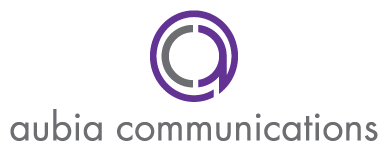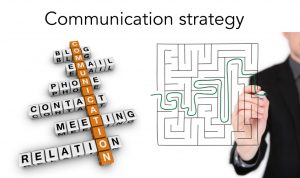
In today’s globalized world, communications professionals are increasingly expected to manage relationships with publics “spread across multiple partners, communities and individuals around the globe” (Arthur Page Society, 2007, in Gilpin & Murphy, 2010, p. 72). As this is the case, it has become critical for practitioners to have an understanding of how globalization is affecting employee communications to help CEOs and Human Resources departments implement effective employee multicultural communications programs (EMCP) to meet business objectives.
In order to achieve this understanding, there is a distinct need for more sensitive multicultural communications. Just ask the American oil rig supervisor who was chased by an angry mob of Indonesian workers with axes for yelling at an employee. In Indonesia, it is unheard of to berate anyone in public. Or the German engineers who were highly offended when their American colleagues addressed them by their first names, a gesture reserved for only close friends and family, instead of the more formal title of Herr or Frau.
Multicultural communications helps multinational companies succeed
Multicultural communications has become a required concept in today’s globalized business world. To succeed in multicultural communications, “defined by the degree to which interactants are able to avoid misunderstanding,” one must exhibit cultural intelligence.
Employee communications theory puts forward how employees seek and share information within an organization (Kim & Li, 2010). Internal communications, defined by Leitch and Motion (2010) as either an “uncontrolled” (p. 113) process of informal communications among employees or a “controlled” (p. 113) process of formal communications directed at employees by the organization, in an MNC are vital to assisting employees in the understanding of the various cultures they could be working in or with.
EMCPs go beyond just cultural awareness training by further developing a comprehensive program that creates long-term relationships with international colleagues in multicultural environments where cultural nuances are incorporated into business and personal affairs for successful experiences.
A case study in multicultural communications
To better understand how employees felt about the benefit or detriment of implementing an EMCP, I conducted a focus group with eight employees from a MNC in 2013.
The focus group explored one research question:
How do multinational company employees working within multicultural environments or with multicultural colleagues view the value of an employee multicultural communications program?
The MNC was a global engineering group based in England with subsidiaries in more than 50 countries.
The company offered a management development program for its future business leaders where each year a group of about 10 selected candidates from around the world worked in six-month placements across a variety of disciplines in subsidiaries throughout the globe. A program of training and development was tailored for these rotations to build professional skills and provide insight into the business structure. A mentor at each subsidiary was assigned to the candidate to assist with transitioning into the new business and culture.
Though the program offered technical training, it lacked formal multicultural training. Informal multicultural training was left up to questions-and-answers sessions with the employee’s mentor, independent research and self-found language training.
Focus group participants were:
- A male employee from England working in Mexico with a former rotation in Switzerland
- A male employee from the U.S. working in Brazil
- A male employee from the U.S. working in Switzerland with a former rotation in Brazil
- A female employee from China working with colleagues from the U.S. and England
- A male employee from England working in Switzerland with former rotations in Poland and the U.S.
- A male employee from England working in the U.S.
- A male employee from England working in China with former rotations in Sweden, Switzerland and Singapore
- A female employee from China working with colleagues from the U.S. and England and entering into her first international rotation in Switzerland the following month
Due to the international nature of the program, an online focus group was mandatory. A bulletin board format through email was used.
I served as the moderator, and a series of emails breaking the questions into three parts were sent to all participants. The first set of questions covered the opening and introduction questions. The second set of questions covered the transition and key questions. The last set of questions concluded with the ending questions.
The participants were instructed to reply to all with their responses to the questions and comments on other participants’ responses. By replying to emails a link was created that was used to determine when a participant was responding directly to another participant’s responses.
The participants were given a 24-hour period to respond to each set of questions and other participants’ responses. After the 24-hour period concluded, the responses and comments for that set of questions closed and the next set of questions was sent out.
The focus group results were analyzed using a key concepts framework that focused on the frequency, specificity and emotion of central themes to the discussion.
Surprise findings
An overwhelming majority of the participants found learning how to successfully cope with multicultural interactions as the most beneficial aspect of the program.
“Most rewarding has been the ability to interact with different cultures across the globe, not only where I am located but also through those that I deal with on a daily basis, whether they are members of other MNC teams or customers.”
Following closely behind this was learning languages and making global networking contacts.
“Meeting new people and making new friends in different places has played a huge role in my ability to adjust to new places.”
Many comments about global networking were also ended with exclamation points, showing a firmly-held belief in its benefit. Repeated words such as “network,” “opportunity,” and “growth” appeared frequently.
Though the participants all had varying responses for what has been most difficult for them in the training program, most of the answers reflected back on cultural differences.
“Adapting some of my nature to fit slightly better into their culture or at least tone down certain aspects and understand other people’s personality.”
“You need to learn how people operate to understand how best to get a successful outcome.”
Other responses encompassing cultural differences included work hours and ethic, not knowing what was ethically acceptable in a subsidiary’s culture versus the employee’s home nation, openness in the work place, and work place greetings. Unique statements about difficulties included the stress of setting up one’s living arrangements in the first few weeks of the rotation, being separated from family and friends, and living outside of metropolitan areas as the subsidiaries were mainly located in smaller towns. Language barrier was a repeated theme in this category, many times followed by exclamation points.
Even though many of the participants agreed that the MNC did not prepare them for their multicultural experiences, most of the employees distinctly expressed the desire not to receive multicultural training before their rotations. The majority of the participants said they would rather learn the new culture themselves than have a non-authentic training by headquarters that could bias their outlook on the culture they were entering.
“I do not think that they [the MNC] should have prepared us entirely. I personally think that a more rewarding experience is to be thrown in the deep and come out swimming – part of the challenge of the program.”
A noticeable desire that came from the group, though formal training was not wanted, was a more formal means of sharing information among program members. A few of the focus group participants expressed how sharing what they learned at a subsidiary could be passed on to another member for future insight.
“We may have chats with each other but the MNC can provide a more formal way to maintain these info.”
Though the majority of focus group participants expressed a lack of perceived value in an EMCP, all of the participants did have certain items they would like covered in training before a rotation. Most of the responses centered on business items, such as email greetings, how to negotiate and legal issues. Other items included local transportation, banking and finance, holidays, and sport and entertainment activities. A repeated theme in what to include in an EMCP was safety and health information.
In the end, most of the participants echoed each other about the most important concept that came out of the focus group: how much multicultural training they needed before rotations. Again, the majority of participants agreed that they would rather learn about the new cultures they were entering on their own than through a formal training. They continued to express their interest, though, in having a formal platform to share information among themselves.
What does this mean?
Overall, the findings from the focus group were in line with the variables of multicultural communications and employee communications theories. The entire group agreed that learning to interact with other cultures without misunderstandings was a challenge at the beginning of each rotation.
To my surprise, though, the group did not believe a more formal multicultural training method, such as an EMCP, was needed to overcome the obstacle. As Leitch and Motion (2010) posited, the group expressed a desire for an “uncontrolled” (p. 113) means of handling the challenges themselves through communications among each other instead of from the company. The majority of the group agreed receiving a more formal training before going into the rotation either biased them toward the culture or defeated the purpose of the management development program.
“I think one of the reasons we were chosen for this global graduate scheme was our willingness to see new countries, explore different cultures and assimilate to new ideas, This and the fact that most of us have traveled in the past meant that we were ready to explore new cultures without any bias to what lay before us… The rest of it [training] I prefer to learn through questions, exploration and activities, which will give a much more rounded view of the culture than I think training will be able to give.”
A possible rival explanation to this contradiction was the company’s culture. The particular MNC tended to be decentralized and encouraging of the entrepreneurial spirit. It is plausible then that the particular pool of focus group participants reflected those leadership characteristics, and, therefore, would be more apt to learn on their own than by being led by a centralized EMCP.
“I am more inclined to say that we should (and do) tend to speak to each other and other work colleagues to learn about these experiences ourselves.”
The focus group findings revealed that an EMCP many not be the final answer to achieving business objectives in all MNCs. As the participants stated, they do want better understandings of the cultures they are working in, but most of them want to achieve that understanding in a more decentralized method.
Limitations, however, to this case study included the use of only one focus group within one company. More focus groups with respondents from other programs or MNCs could have allowed for comparing and contrasting responses and reaching saturation. Also, as was witnessed in the rival explanation, other MNCs with their own unique cultures may have produced different findings.
Where does multicultural communications go from here?
As focus groups cannot and are not meant to be generalized to a larger public, this attitude may not be shared by all MNC employees. It is important when making the business decision for an EMCP and its extent to determine on a case-by-case basis the need for each unique organization.
What is your opinion of an EMCP? Would you encourage one in your company or do you agree with these focus group participants?
All reference citations can be found in the SAGE Handbook of Public Relations edited by Robert L. Heath.



